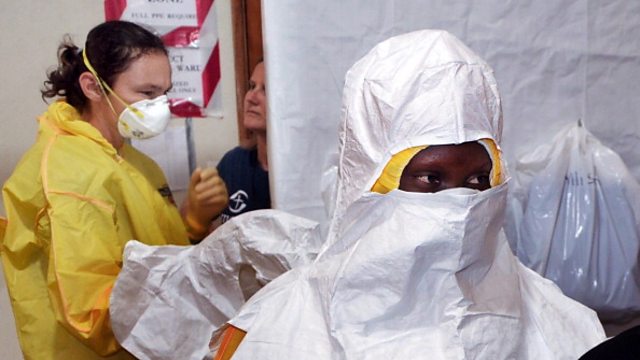
Ebola One Year On
One year on, those at the forefront of fighting ebola in Africa warn that all countries need to be clear of the disease before the danger is over.
One year on, those at the forefront of fighting ebola in Africa warn that all countries need to be clear of the disease before the danger is over. Dr Oliver Johnson, programme director of the Kings College London Sierra Leone Partnership and works in Freetown tells Claudia Hammond that neighbouring Guinea, which has recently seen a spike in cases, is causing real concern. And he describes the enormous work that is needed to tackle the damage done by conflict and the ebola epidemic to Sierra Leone’s fragile health service.
Food crime
This week saw the first convictions in Britain in the so-called horsemeat scandal where horse meat was passed off as beef or lamb in Britain in 2013. And last month Interpol the international criminal police organization announced that it had seized thousands of tons of fake food in a joint operation with its colleagues at Europol. In just two months they seized food from 47 countries.
Virtual reality
Anil Seth, professor of Consciousness Studies at the Sackler Centre at Sussex University has been experimenting with our sense of self, and our experience of the world, by using a hi tech headset combined with 360 degree cameras to transport your whole experience to a different space. Virtual reality becomes "substitutional" reality'.
Dutee Chand appeal
Indian sprinter Dutee Chand has started an appeal at the Court of Arbitration for Sport (Cas) against her indefinite ban from competition.
Training eyes to see Better
Failing eyesight means increased falls and increased car accidents among the elderly. People over 75 are even more likely to have car crashes than young novice drivers. One of the problems is that people start to find it hard to see contrast and to detect the detail in what they are seeing. But psychologists at the University of California Riverside have found that after one and a half hours training each day for five days, the eyesight of some older people had improved.
Human Genome
One of the largest studies in sequencing the human genome in Iceland has been published this week - including data from more than 100,000 people. James Gallagher, describes how such information could be used.
Coral Reefs
Coral reefs around the world are disappearing – some reports say we have lost up 40% of them over the last 30 years. And we are losing biodiversity in our oceans that we know very little about. The Catlin Seaview Survey is attempting to document and collect baseline data on the state and species in the world’s coral reefs using cameras that divers can use to capture 360 degree panoramas and GPS location data – gathering images that can later be run through image recognition software. Some of the images and more on the threats to reefs past and present are displayed in the new exhibition Coral Reefs: Secret Cities of the Sea - just opened at the Natural History Museum in London.
Giant Salamanders
Scientists have discovered a new species of massive, toothy amphibian dating from 220 million years ago.
(Photo: Ebola health workers wearing protective suits. Credit: Getty Images)
Science Hour was presented by Claudia Hammond with comments from ���˿��� Science reporter James Gallagher
Last on
More episodes
Previous
Clip
-
![]()
Food Crime
Duration: 00:54
Broadcast
- Sun 29 Mar 2015 13:05GMT���˿��� World Service Online
Podcast
-
![]()
Unexpected Elements
The news you know, the science you don't


